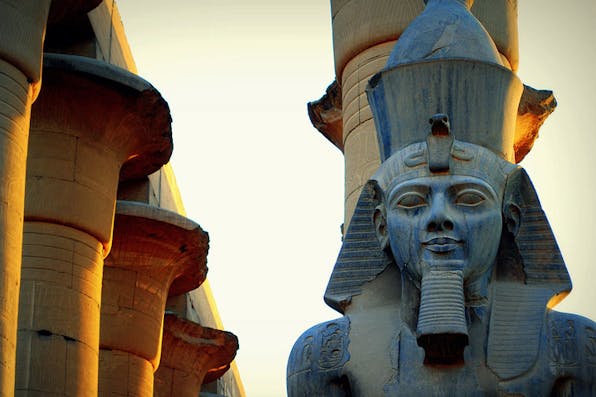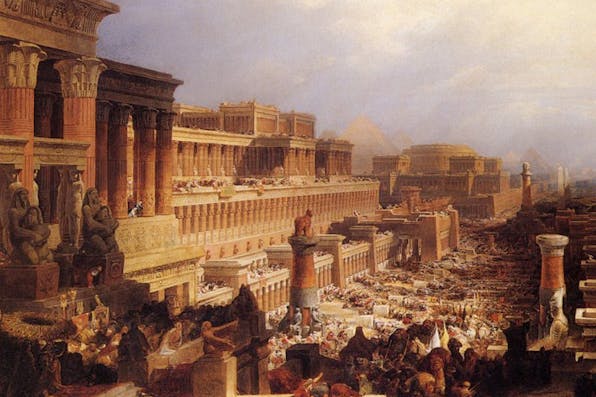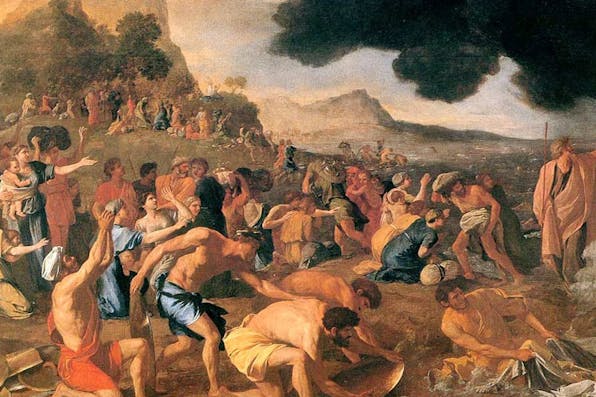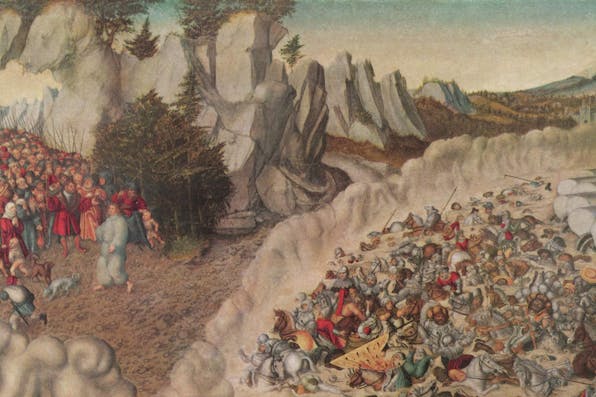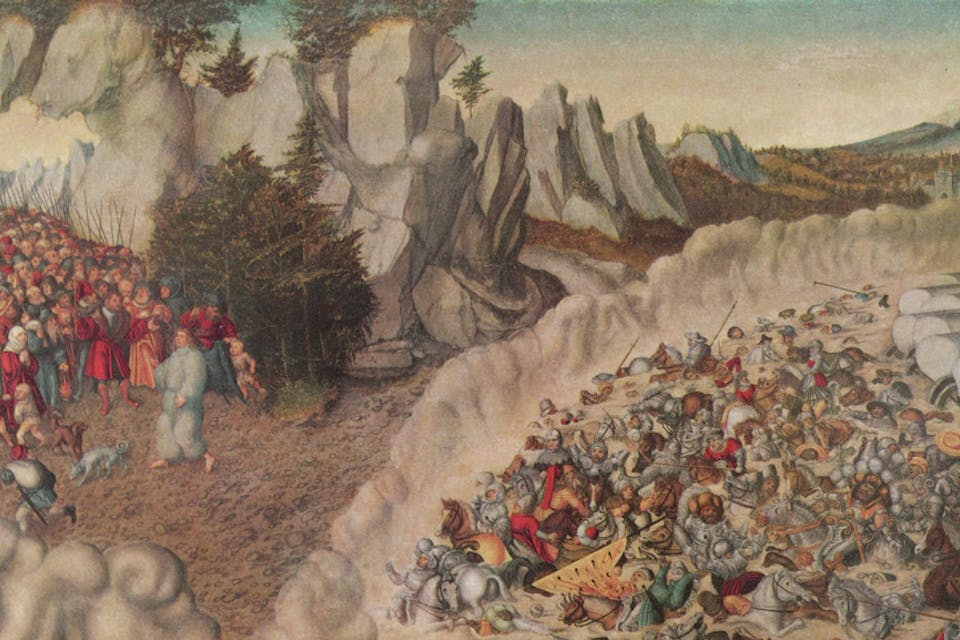
March 23, 2015
Was Israel Taken out of Egypt, or Egypt out of Israel?
Why some scholars want to see the exodus as just a great story.
I thank my fellow biblicists Richard Hess, Ronald Hendel, and Benjamin Sommer for sharing their insights into the question of the historicity of the exodus. As I mentioned in my essay, more and more people are interested in what professional Bible scholars have to say about this issue, and the editors of Mosaic have done a true service by offering something unavailable elsewhere on the Web: an extended discussion from different perspectives, pitched to general readers and educated non-specialists. Readers need to know that one cannot rely on a single scholar’s blog post or essay any more than on the advice of a single surgeon or financial analyst. There is simply no such thing as “what biblicists say” on a given topic, since biblicists construe the data in different ways.
In the case of my essay, one particular construal is that of Ronald Hendel, who dismisses the extended parallels I identified between the “Kadesh Poem”—inscribed in monuments to the 1274 BCE victory of the pharaoh Ramesses II over his Hittite rivals—and the account of the Israelites’ departure from Egypt and the encounter at the sea in chapters 14 and 15 of Exodus. In rebuttal, Hendel claims that most of the motifs cited in my essay, far from being distinctive to these two sources, as I argued, were instead “formulaic and widely distributed” in ancient Egyptian literature.
This is a strong claim, so let’s set the record straight. No Egyptian composition other than the Kadesh Poem speaks of how the pharaoh’s troops fell into disarray when surprised by an enemy chariot force. No other Egyptian composition speaks of the pharaoh pleading to his god and being told to proceed forward in battle against all odds. No other Egyptian composition has defeated enemy troops vocally acknowledging the superiority of the Egyptian divinity who has been working against them. No other Egyptian composition describes (let alone visually portraying in a bas relief, as in the case of the Ramesses monuments) the drowning of the enemy force in a body of water. No other Egyptian composition describes how the pharaoh’s own formerly dispirited troops return to the battlefield, survey the enemy corpses, and erupt in a spontaneous, extended hymn.
